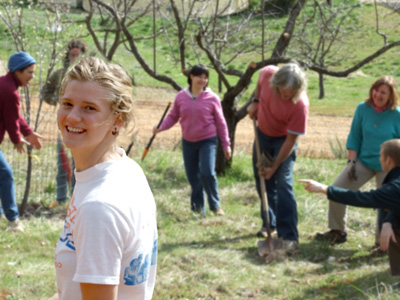 The spiritual path would be relatively easy to understand if it involved only meditation, ecstatic visions, and a blissful expansion of consciousness. Why must it be complicated by mundane activities like paying the bills and writing emails and cleaning the kitchen? What do these things have to do with finding God?
The spiritual path would be relatively easy to understand if it involved only meditation, ecstatic visions, and a blissful expansion of consciousness. Why must it be complicated by mundane activities like paying the bills and writing emails and cleaning the kitchen? What do these things have to do with finding God?
The answer is, quite simply: nothing! Not in itself, anyway. Paramhansa Yogananda once told the story of a man who placed a hundred-dollar bill in the collection plate at church, then was upset because God didn’t answer his prayer. Laughingly he commented, “God already was that hundred-dollar bill — whether in or out of the collection plate! Why should He care where it was placed?”
The realm of maya (cosmic delusion) is like the surface of an ocean: No matter how high the waves are whipped by the storm, the over-all ocean level remains the same. God doesn’t need anything that we can give Him. He already is everything! The one thing He wants from us, Yogananda said, is our love.
The purpose of spiritual work, then, is not really to do things for God, but rather to do the most important thing of all for ourselves: to purify our own hearts. No work for God is more or less important than any other. The Bhagavad Gita, one of the main Hindu scriptures, states that He accepts even a flower or a leaf as an offering, if it is tendered with devotion. The important thing is to reach the point where all our love, all our energy flows naturally toward Him.
Meditation, too, is a kind of work. True, it differs from such labor as digging ditches, but so also does decision-making. Meditation is the most refined and exalted of all mental activities. From it have come the greatest inspirations. If one could meditate deeply all day there would be no need for a person seeking divine communion to dig ditches or to do any other work, whether physical or mental.
The key word here is “deeply.”
When Mrinalini Mata, already a disciple of Yogananda when she was still a young schoolgirl, met Yogananda at the breakfast table one day, he remarked to her, “You didn’t meditate this morning.”
“Sir,” she protested, “I meditated a whole hour!”
Yogananda, quite unimpressed, replied, “You should have meditated half an hour.” He had seen that in sitting longer, when not in a mood that day to meditate with intensity, she had actually done less effective meditation.
Intensity is everything: intensity of awareness. Superconsciousness cannot be attained by halfhearted efforts. “You must be calmly active, and actively calm,” Yogananda said. “Be intensely aware of everything you are doing.” Work, on the spiritual path, is a means of helping one to channel his energies constantly, dynamically, toward God.
“Make every minute count,” Yogananda said. “The minutes are more important than the years.” People who put their whole concentration into working for God find they can also meditate more deeply.
“When you work for God, not self,” Yogaanda told us one day, “that is just as good as meditation. Then work helps your meditation, and meditation helps your work. You need the balance. With only meditation you become lazy, and the senses become strong. With only work, the mind becomes restless, and you forget God.”
Ananda Meditation App
A free app with guided meditations and techniques, based on the teachings of Paramhansa Yogananda. Go deeper in the joy of your own Self.
Download the appStart a New Meditation Practice or Inspire Your Current One
The 10-week Ananda Course in Meditation online course is designed to provide in-depth instruction in scientific meditation techniques that bring more peace, deeper relaxation, and focused concentration to every area of your life, regardless of outer conditions.
These techniques are based on the teachings of Paramhansa Yogananda, author of Autobiography of a Yogi.
